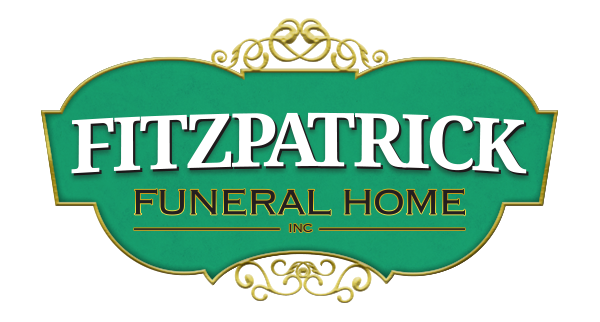

Serving the Living of All Faiths Since 1920.

Frequently Asked Questions
It is common to have questions about the funeral process. This section answers some commonly asked questions to help make this process easier for you. If additional questions arise, please feel free to contact us directly at the funeral home.
Frequently asked questions…..
1. What is a funeral and why is it important?
- Funerals are not just a ceremony to honor those who have died. Funerals are also an important ritual that helps survivors start dealing with their loss by sharing with those around them.
- Offers an opportunity to express feelings of grief
- Encourages sharing of memories that celebrate and validate the life of the deceased
- Provides support from friends and family and acknowledges the loss within the community
- More than just a service for the person who has died, a funeral is for the loved ones who are left behind. Participating in a funeral can be a therapeutic act that actually starts the healing process. "Funerals are not to benefit the dead, but the living. They have a number of unparalleled therapeutic benefits. As a rite of passage, the funeral assists you in recognizing the passing of your loved one, supporting you as you start your life without the deceased, and reintegrating you back into the social group as a person whose loved one is no longer alive." ~ How to Go on Living When Someone You Love Dies by Therese A. Rando, Ph.D.
2. Is embalming required by law?
- In Pennsylvania, Embalming is not required by law; however it may be required for viewing or transportation purposes. It also may be required for mausoleum entombment.
3. Should Children attend funerals?
- Children grieve just as adults do. You should explain what is happening and why it is happening at the child’s comprehension level. What a 3 year old understands is much different than what a 12 year old understands. The key is to allow the participation, not to force it. Forced participation can be harmful. Children instinctively have a good sense of how involved they wish to be.
4. Are outer burial container or vaults required by law?
- NO state has a law requiring burial vaults. Most cemeteries, however, do have such regulations because the vault keeps the grave from sinking in after decomposition of the body and casket, reducing maintenance for the cemetery workers.
5. What is cremation?
- Cremation is simply a form of disposition. The crematable casket is placed in a cremation chamber where, through a process of heat and evaporation, the body is reduced to its original elements- bone fragments, not ashes.
6. Can you have cremation with an open casket visitation?
- Yes, many families select an appropriate service to take place before the cremation or after. You may still have a traditional funeral with visitation, with the cremation disposition taking place after the service.
7. How Does A Person Pre-Arrange A Funeral ?
- You simply meet with either us, in your home or at the Fitzpatrick Funeral Home.
- You select the services and merchandise you wish and in the price range you feel comfortable.
- You arrange to pay for your funeral in a single payment or monthly payments up to five (5) years.
8. Should I discuss pre-arrangements with my family before deciding?
- Many people find that a family discussion helps to ensure that everyone involved is comfortable with the arrangements being made. Certainly, family members can form a closer bond through discussions of this type. And often, people are better able to determine what their real feelings and personal preference are after they’ve shared this information with loved ones. We encourage you to discuss your thoughts and decisions with your family.
9. If I buy a funeral plan now to be used in the future, how do I know it will be available when I die?
- If you buy now (pre-need) the merchandise items to be delivered in the future are provided for by a State of Pa. law requiring the seller to deposit 70% of the sale amount of the item in a trust fund to be used to supply the item when the death occurs. The service items to be delivered in the future are provided for by a State of Pa. law requiring the seller to deposit 100% of the sale amount in a trust fund or have an insurance policy to cover the items sold as such.
10. What happens if someone close to me dies away from home?
- After the death has occurred, the most prudent decision would be to call your funeral service. Your funeral director will be able to make the necessary arrangements to transfer the deceased, relieving the family of the burden of dealing with unfamiliar people, places and related issues.
What is a funeral?
A funeral is a ceremony for a deceased person, prior to burial or cremation. A funeral gives the opportunity for family and friends of the deceased to gather and mourn the passing of their loved one, to share cherished memories, and to celebrate their life. A funeral is a vital first step in helping the bereaved heal after the loss of someone special.
What type of service should I have?
If no pre-arrangements have been made, the type of service is entirely up to you, but it is best to consider what the deceased may have wanted. Services are usually held at a funeral home or a place of worship. There are a wealth of different services, ranging from traditional religious or military services, to something a little more unique. Our funeral directors are more than happy to work with you to figure out what would be the most appropriate.
Can I personalize a funeral?
Of course you can! In fact, more and more people are opting for non-traditional, personalized services. There is no one way to celebrate somebody’s life. Let the funeral director know exactly what your desires are and they will honor your wishes.
Do we need to have an obituary notice and what is included in one?
It is highly recommended to have an obituary notice that is either posted in a local newspaper or online. An obituary lets the public know that a death has occurred, and provides them with information about the service. Obituaries generally include the deceased’s full name, age, city, and date of birth, as well as the city they were living in when they died. It also includes the name of the deceased’s spouse, along with the names of anyone else significant in their lives, such as parents, children, or grandchildren. Space may be limited in a newspaper obituary, but you might also wish to include a short sentiment on the life and legacy of the deceased. An online obituary or memorial website offers you the chance to add a lot more about the deceased.
Who are funeral directors and what do they do?
Funeral directors are in charge of all the logistics following a death. They complete all the necessary paperwork, make arrangements for the transportation of the body, and put into action the choices made by the family in regards to the funeral service and the final resting place of the body. Beyond all of this, funeral directors are there to provide emotional support and personal guidance in the wake of a loss.
What happens if the death occurs in the middle of the night or on the weekend?
We are here to help. Funeral directors are available 24 hours a day, 7 days a week, and 365 days a year.
What if a death occurs away from my home town?
We can arrange to have the remains transported from anywhere in the world. We will assume responsibility and make the proper arrangements to have the remains return to the community.
What is embalming and what purpose does it serve?
Embalming sanitizes and preserves the body. It also slows down the decomposition process and enhances the appearance of a body impacted by a traumatic death or illness. Embalming gives time to the family of the deceased to arrange a service, and allows for the possibility of an open-casket viewing.
Do I need to have an embalming?
No. In fact, some religions forbid embalming. Some countries do require embalming by law in order for remains to leave or enter the country. If it is not against your religious custom, embalming is generally recommended, especially if there is an extended gap between death and burial or cremation.
How much does a funeral cost?
The cost of the funeral depends on the services selected. The average cost of a funeral is between $5,000-$7,000; however, the most basic of services can cost as little as $1000. The cost includes all professional services including transportation, embalming and other preparations, the use of a facility for the ceremony, and the purchase of a casket or urn.
Why are funerals so expensive?
Funerals are labor intensive A funeral's cost extends beyond the merchandise, and includes the services of the funeral director. Their role in making the necessary arrangements, filling out forms, and dealing with all the other figures involved after a death (doctors, lawyers, insurance companies). Funeral directors work an average of forty hours per funeral, and the cost of operating a funeral home is included as well. Funeral homes are a 24 hour operation, with extensive facilities that need to be maintained and secured.
What do I do if I am not satisfied with the way a funeral was handled?
Funeral Services in the United States is regulated by the Federal Trade Commission, they can be reached by telephone at 1-877-FTC-HELP (382-4357) or you can fill out a form online at www.ftc.gov. In Canada, funeral services are regulated provincially and this information can be found on the Canadian Consumer Information website at www.consumerinformation.ca.
Philadelphia, PA 19128
US




